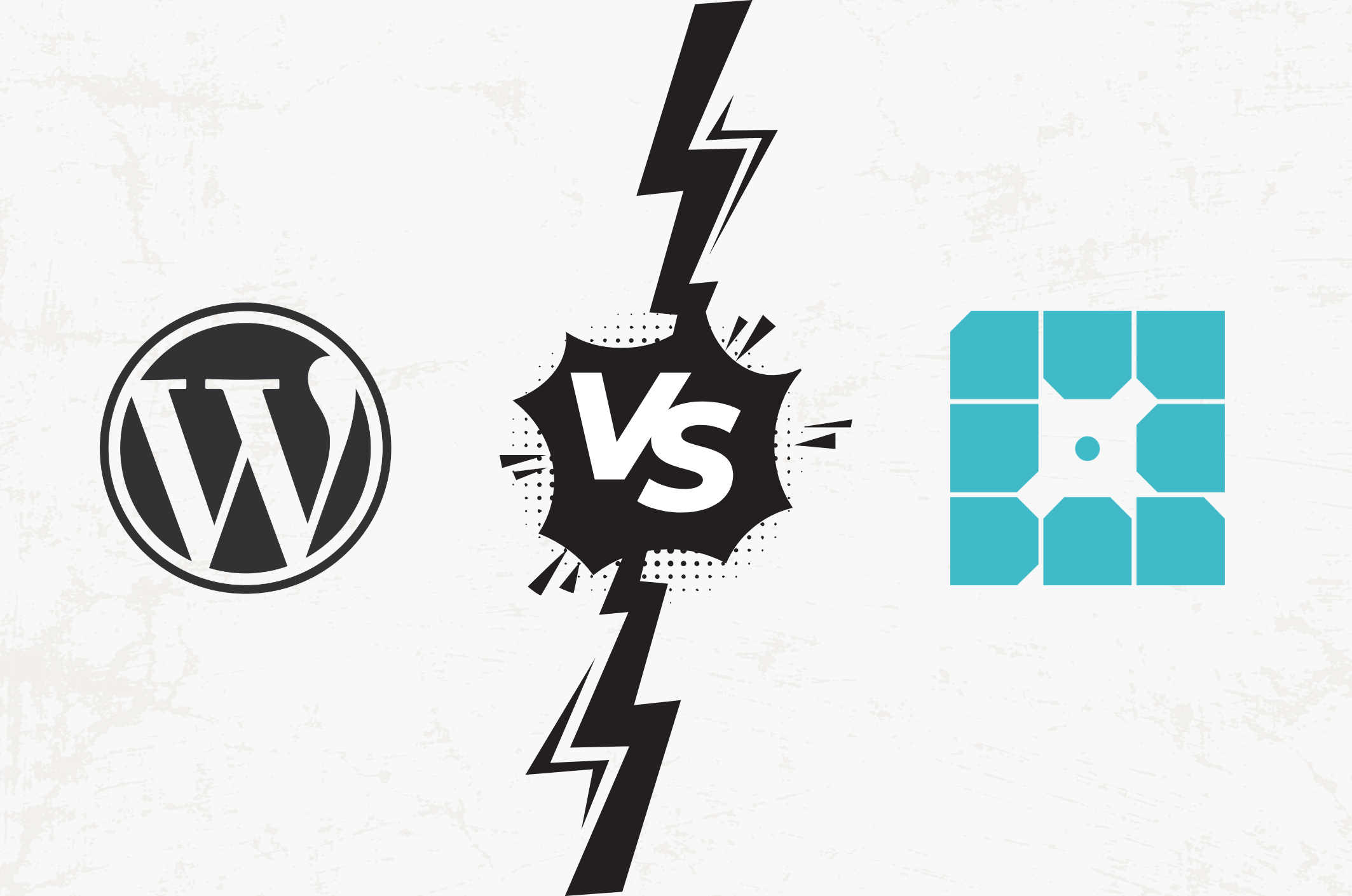The conflict between WordPress.org and WP Engine has sparked conversations within the tech community, raising important questions about the future of WordPress as both an open-source platform and a commercial ecosystem. At the heart of this dispute are issues surrounding the use of the WordPress trademark, control over platform development, and the broader clash between open-source principles and commercial interests.
WordPress.org has long been a community-driven project, supported by contributions from developers around the world. WP Engine, a managed hosting service, has built a profitable business around WordPress. The conflict stems from allegations that WP Engine has unfairly useed the WordPress brand to promote its services while contributing little to the open-source project itself. These concerns have led to legal action and intensified debates within the WordPress community.
For website owners, this conflict has broader implications. It affects not only their choice of hosting providers but also how the WordPress community evolves in terms of governance, innovation, and commercial control.
Quick Overview of the WordPress and WP Engine Dispute
The WordPress vs WP Engine dispute revolves around issues of trademark usage, control over the platform, and the larger conversation about commercialization within open-source community. This conflict has intensified the relationship between Automattic (the company behind WordPress.com and heavily involved with WordPress.org) and WP Engine, but also highlighted broader concerns about how commercial entities interact with community-driven platforms.
Why the Conflict Arose
The tension between WordPress.org and WP Engine escalated when Automattic, led by Matt Mullenweg, accused WP Engine of using the WordPress trademark in its service names, allegedly misleading users into thinking WP Engine was officially affiliated with WordPress. WP Engine had been using terms like “Core WordPress Hosting” and “Enterprise WordPress Hosting,” which Automattic argued took advantage of the WordPress brand without sufficient contribution to the community or its open-source project.
In response to these concerns, WP Engine adjusted its service names, removing direct references to “WordPress” to comply with Automattic's trademark protection efforts. The underlying issue is about how commercial hosting providers benefit from the WordPress name while potentially restricting the platform's open-source principles.
What WP Engine is Accused Of
Automattic claims that WP Engine has been using the WordPress brand to promote its services without appropriately acknowledging the contributions of the open-source community. WP Engine’s use of terms like “WordPress Hosting” was seen as a way to associate with the platform’s credibility and recognition, but Automattic viewed this as infringement on the WordPress trademark. This claim reflects broader concerns that commercial entities like WP Engine may profit from the WordPress ecosystem without sufficiently supporting the core open-source project.
WP Engine responded by changing its service names and asserting that it had done nothing wrong. They argued that their use of the WordPress name was strictly for identification purposes and did not violate any trademark laws. WP Engine maintains that they have always supported the WordPress community, particularly through event sponsorships and contributions.
Legal Battles and Public Fallout
In October 2024, the dispute reached a new level when WP Engine filed a lawsuit against Automattic in California, accusing the company and Matt Mullenweg of abusing their power over the WordPress platform. WP Engine claims that Automattic’s control over the WordPress.org ecosystem has unfairly limited WP Engine’s ability to operate freely within the community. The lawsuit alleges that Mullenweg and Automattic violated the open-source principles of WordPress by using their influence to stifle competition and steer users toward Automattic’s services.
Automattic has dismissed the lawsuit as meritless, with Mullenweg stating that WP Engine’s actions over the years have been more about profiting from WordPress than supporting it.
In the wake of this conflict, 159 Automattic employees resigned, citing concerns over Mullenweg’s leadership and the direction of WordPress.
Impact on WordPress Website Owners
For website owners using WP Engine for hosting, the ongoing legal battle could lead to disruptions in service, particularly if the conflict escalates further. While WP Engine has ensured its customers that services will continue uninterrupted, it’s important to be aware of potential changes to update access, plugin compatibility, or other functionality, especially if the lawsuit affects WP Engine's relationship with WordPress.org.
Website owners might also see increased tension between open-source WordPress projects and commercial hosting providers, which could result in long-term changes in the way WordPress updates and features are managed within managed hosting environments like WP Engine.
What to Watch For
Developments in the lawsuit between WP Engine and Automattic could impact hosting and site management. Website owners should keep an eye on:
- Changes in service
Monitor for any announcements from WP Engine about service changes or disruptions. - Legal rulings
The lawsuit could set a precedent for how other hosting providers use the WordPress brand and contribute to the ecosystem. - Plugin and theme updates
Ensure that critical WordPress updates and plugin functionality remain compatible with WP Engine’s hosting environment if the relationship between the two continues to deteriorate.
How the Conflict Reflects Larger Issues in Open Source
The WordPress vs. WP Engine dispute highlights deeper tensions within the open-source community, particularly regarding the balance between commercialization and the core open-source ethos that platforms like WordPress.org were built upon. The debate centers around how much influence for-profit companies should have in a space that thrives on community contributions and the principles of openness, transparency, and collaboration.
Commercialization vs. Open-Source Ethos
WordPress.org, from its inception, has embodied the values of the open-source movement, providing free software for users to build and modify as they see fit. This model has been largely community-driven, with developers worldwide contributing code, themes, and plugins, reinforcing the platform’s flexibility and adaptability.
However, as WordPress has grown, so has its commercialization. Companies like WP Engine have built profitable businesses around the WordPress platform by offering managed hosting and related services. This has led to a fundamental tension: while the WordPress community is centered around free, open-source contributions, WP Engine's business model is built on providing premium services for a fee.
The conflict between WP Engine and Automattic has brought this tension to the forefront. WP Engine profits from the WordPress ecosystem but is seen by some as giving back less to the community than what it extracts in terms of brand association and monetization. Matt Mullenweg, who leads both WordPress.org and Automattic, has argued that commercial entities like WP Engine should do more to support the open-source project, rather than merely benefiting from it.
On the other hand, WP Engine defends its role, claiming that it has actively supported the community through event sponsorships and by ensuring its hosting services are optimized for WordPress websites. They argue that their managed hosting services help improve the WordPress user experience, particularly for businesses that lack the resources or technical know-how to manage their own hosting.
This conflict is emblematic of the broader challenge facing many open-source platforms as they scale. While commercial companies bring resources and stability to the ecosystem, there’s a constant struggle to ensure that the original values of openness and community contribution are not overshadowed by profit-driven motives.
Community Reactions
The reaction to this dispute within the broader WordPress community has been divided. Some developers and users side with WP Engine, appreciating the company’s role in providing reliable, managed hosting solutions that simplify WordPress site management. These supporters argue that without companies like WP Engine, many WordPress users, especially businesses, would struggle to manage the complexities of hosting and maintaining their sites.
However, many others have rallied behind Mullenweg's stance. For these community members, the integrity of WordPress as an open-source platform is fundamental. They worry that as companies like WP Engine grow in influence, the core principles of community-driven development could be compromised. Some fear that the commercialization of WordPress could lead to a loss of control for the broader community, as powerful players increasingly shape the platform's direction.
This division has led to heated debates within the WordPress community, with long-time contributors expressing concerns about the future of the platform. Some critics argue that the conflict with WP Engine is just one example of a broader issue: as WordPress becomes more commercialized, it risks losing the very qualities that made it so appealing to developers and users in the first place.
WordPress Ownership vs Drupal and Joomla’s Community-Driven Models
The ongoing conflict between WordPress.org and WP Engine highlights main differences in how major open-source platforms like WordPress, Drupal, and Joomla are governed. At the core of this comparison is the distinction between centralized and decentralized leadership structures, and how these models impact the open-source ethos.
WordPress and Matt Mullenweg’s Influence
Unlike other open-source platforms, WordPress is heavily influenced by Matt Mullenweg, who plays a dual role as both the co-founder of WordPress.org and the CEO of Automattic, a for-profit company that runs WordPress.com and other commercial ventures related to WordPress. This gives Mullenweg significant influence over the direction of the platform, with his decisions directly shaping how WordPress evolves.
As the primary figurehead of WordPress, Mullenweg’s leadership allows for rapid decision-making and innovation, but it has also raised questions about how much control one individual should wield over an open-source project. While WordPress.org is nominally run by its community, Mullenweg’s vision often guides the platform’s roadmap, giving him substantial sway over the project’s development.
In contrast to platforms like Drupal and Joomla, where decisions are made more collaboratively, Mullenweg’s influence has sparked concerns about centralization. This is particularly important given his role as CEO of Automattic, which runs WordPress.com, raising potential conflicts of interest. Some critics argue that decisions favoring Automattic’s commercial interests could undermine the open-source nature of WordPress.org.
Conflicts of Interest
The close relationship between WordPress.org and Automattic has led to concerns about conflicts of interest within the community. Mullenweg’s dual role means that Automattic’s commercial interests, such as WordPress.com and other paid services, can sometimes be perceived as taking priority over the open-source community that powers WordPress.org.
For instance, critics within the WordPress community have questioned whether Mullenweg’s decisions are always in the best interests of the global developer network, or if they sometimes benefit Automattic’s business goals.
This tension became more pronounced during the WP Engine conflict, with some community members siding with Mullenweg to protect the open-source identity of WordPress, while others saw his actions as reinforcing the commercialization of the platform
Decentralized Leadership in Drupal and Joomla
Drupal’s Community-Driven Approach
In contrast to WordPress’s centralized leadership, Drupal operates under a more decentralized model. The platform is governed by the Drupal Association, a non-profit organization that supports the open-source community. Decisions about Drupal’s development are made collaboratively by contributors, who participate in a global network of developers. This ensures that no single individual or entity has outsized control over the platform’s future
Drupal’s governance structure emphasizes collaboration and community input, with key decisions made through a process of voting and community discussions. This decentralization helps protect the open-source principles at the heart of Drupal, as it encourages more transparent decision-making and limits the influence of any one company or individual.
Joomla’s Governance
Similarly, Joomla is managed by a community-led foundation that fosters an open-source philosophy based on collaborative governance. The Open Source Matters organization oversees Joomla’s development, ensuring that decisions are made democratically by contributors from around the world.
This approach allows Joomla to remain true to its open-source roots, with a governance model that prevents any single company from dominating the platform’s direction. Like Drupal, Joomla relies on its global contributor base to drive innovation and manage the platform’s ongoing development, reinforcing the idea that the community—not corporate interests—guides the platform’s evolution.
What This Means for Website Owners
The ongoing conflict between WordPress.org and WP Engine raises important questions for website owners about how to choose the best platform for their business. Whether you’re deciding between self-hosted solutions or managed services, it’s essential to weigh the pros and cons of each approach, as well as consider alternative platforms like Drupal and Joomla.
Choosing the Right Platform
When deciding whether to stick with WordPress.org or use a managed hosting option like WP Engine, website owners need to consider several factors:
- Control and Customization
If you prefer complete control over your website's design, plugins, and functionality, WordPress.org with a self-hosted solution may be your best bet. This option gives you full freedom to install custom themes and plugins, modify code, and manage your website's performance according to your specific needs. However, this also means you're responsible for maintenance, updates, and security—tasks that can be time-consuming without technical expertise. - Ease of Management
On the other hand, WP Engine offers a more hands-off approach by managing security, performance, backups, and updates on your behalf. While this convenience comes at a higher cost and may limit some customizations (as certain plugins or modifications may be restricted for security reasons), it’s ideal for website owners who prioritize ease of management and don’t want to handle technical tasks. WP Engine’s managed hosting also provides fast loading speeds and strong security, making it appealing to businesses that rely on reliable performance without much hands-on effort - Cost Considerations
Self-hosting your WordPress site can be more cost-effective, especially for small businesses or startups with limited budgets. With WordPress.org, you have the flexibility to choose from various hosting providers, potentially saving money compared to managed solutions like WP Engine, which typically come with premium pricing for the added convenience.
Exploring Alternatives
For website owners who prioritize open-source principles and prefer platforms with decentralized governance, Drupal or Joomla may be worth considering. Both of these platforms offer robust alternatives to WordPress, especially for those who value greater transparency and community-driven development.
- Drupal
Known for its flexibility and scalability, Drupal is a strong choice for businesses that require complex, high-performance websites. It is governed by a non-profit foundation and relies on a global community of contributors. Drupal’s decentralized model ensures that decisions about its future are made collaboratively, aligning more closely with open-source values. While Drupal can have a steeper learning curve, its powerful customization options make it a go-to platform for large enterprises and organizations with specific, unique needs. - Joomla
Like Drupal, Joomla is managed by a community-led foundation, offering a democratic decision-making process that ensures the platform remains open-source and community-driven. Joomla is user-friendly and can be a middle ground between WordPress and Drupal, offering more customization and flexibility than WordPress.com or WP Engine, while still providing a more structured and less complex environment than Drupal. This makes Joomla a great alternative for website owners seeking a balance between customization and usability.
The Future of Open-Source Platforms
The ongoing dispute between WordPress.org and WP Engine is more than just a legal battle—it highlights the broader tensions within the open-source community over the balance between commercialization and the community-driven ethos.
Staying informed about the governance models and commercial dynamics behind these platforms is important for making the best decisions for your website’s future. Understanding how these dynamics shape the platform can ensure your choice aligns with both your technical needs and philosophical preferences.
Sources
- ITAcute.com / WPJohnny / Startup News




